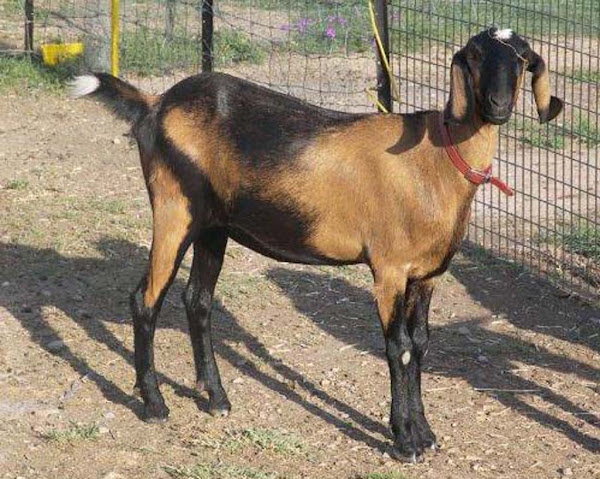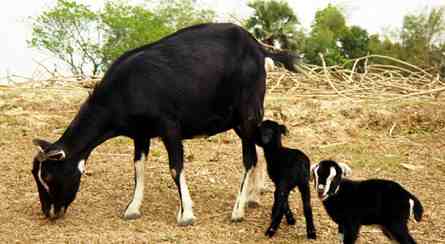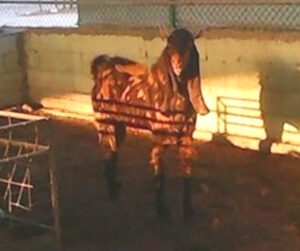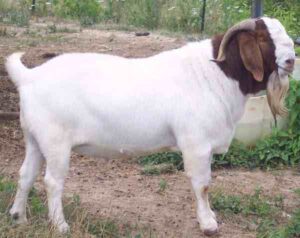Learning about goat first aid is very important whether you raise goat as pet or for the purpose of generating profits. Diseases or any other health issues can be seen in your goats at any time, with or without any signs or symptoms.
These diseases or other health issues can result a huge loss, especially if you raise goats commercially. So it’s very important to learn more about the goat first aid. You always have to be prepared. You must know what to do until a vet arrives, if your goats have an emergency.
Goat First Aid
Learn the basic means of treatment and have essential materials on hand for common minor issues. Some issues require a veterinarian. For example, veterinary attention is required for an eye injury.
Goat First Aid Kit
It’s always good to have a goat first aid kit available in your farm. Basic first aid kit of goats include activated charcoal, antibiotic ointment, antibacterial soap and scrub, a stethoscope, a thermometer, an epinephrine pen for shocka spirin, mineral oil, bandages, bismuth subsalicylate, disposable latex gloves, gauze pads, eye wash, fungicide spray, saline solution, salt etc.
A knife, adhesive & duct tape and scissors are also required. For injections, keep syringes on hand along with penicillin and tetanus antitoxin.

Consult with your vet and ask him/her about other items which you have to include in your goat first aid kit. Always keep the phone number of your vet, so that you can call him/her in case of emergency.
Lameness
A hoof of your goat could get cut and bleed if you trim your goat’s feet by yourself or if a farrier cut it. This can causes lameness in your goats.
Examine the goat very carefully if it is experiencing unexplained lameness and you might need to bandage it’s foot for a few days.
Give the goat aspirin for a day or two, if it has apparently sprained a muscle. Be very careful about using aspirin. Generally a goat of 60 pound weight requires about 5 grams of aspirin.
So while using aspirin, adjust the amount according to the weight of your goats. In most cases a serious fracture requires veterinary attention immediately.
Poisoning
There are many things available around you and your farm area which are poisonous for your goats. Find out the things and plants around your farm which are poisonous to your goats and remove them.
Bleating in pain, convulsions, difficulty breathing, frothing at the mouth, paralysis, staggering etc. are common symptoms of poisoning.
In case of poisoning, call your nearest vet as soon as possible. He/she will suggest you the ways through which you can save your goats. In case of poisoning, most of the vet will suggest vomiting along with other suggestions.
For vomiting, keep two tablespoons of salt at the back of the tongue of your goats. After successful vomiting, give the goat water, activated charcoal and mineral oil according to your vet’s suggestion. Thus you can save your goat from poisoning.
Vital Signs
You need to measure your goat’s vital signs, if the goat appears not obviously sick but not quiet right. When you call a veterinarian, that’s the first thing that he/she will ask you.
Normally the temperature of a healthy goat ranges between 101.5° to 105° Fahrenheit.
Their normal respiration (when they take rest) is between 12 to 20 breaths per minute and the normal pulse rate ranges between 70 to 80 beats per minute.
Rising pulse and respiration rate can even occur due to slight exertion. Call the vet if you notice any change in this system.
Wound Care
Your goats will experience minor wounds if you keep them long enough. If you notice that any of your goat is experiencing a small cut, then wash out it’s wound place with antibacterial soap and apply antibiotic ointment.
Call the vet in case of deeper cuts, because deeper cuts require suturing. And before the vet arrives, gently bandage the wound.
If you see blood spurts, call the vet immediately because an artery could be cut (it’s a red alert vet emergency). Sometimes your goats may be attacked by other animals such as coyotes or dogs.
In this situation, get the attackers away and move the goat to a safe place as soon as possible. After that call the vet quickly. Cut the hair around the wound places of your goats and wash the place out with antibacterial scrub.






